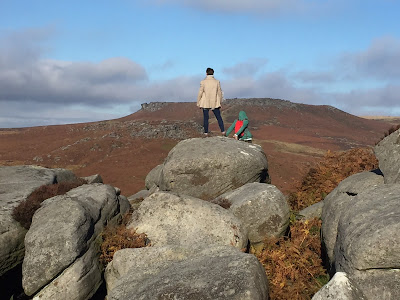Quakers sometimes make a distinction between ‘activist’ Friends, who are attracted by the social action, and ‘mystics’ whose focus is the Meeting for Worship.
For me, the Quaker way is not about becoming either an activist or a mystic. It is primarily a path of discernment - a way of enabling each of us to discover our own unique calling and potential, which will look very different for every person. For some, faithfulness to the Inner Light will lead to challenging systems of injustice. For others, it may be about building up community, supporting their neighbours, caring for children or listening to people who are lonely or struggling. And some people will be led into different kinds of commitment at different times, in response to their own circumstances and to the gradual unfolding of their own soul needs and capacities.
There is no standard template for a ‘good Quaker’ or a moral or spiritual person. Each of us has to discover our own gifts and our own contribution to the world’s needs, according to the inward guidance that is available to us. How to do this is not a secret. It is summarised in the first sentence of the first of the Advices & Queries - “Take heed, dear Friends, to the promptings of love and truth in your hearts.”
We do this in Quaker Worship, when we allow our thoughts to become still, and our consciousness to ‘sink down’ to a place of inward listening. Here we may become more aware of what is going on in our hearts and souls, and more receptive to the movements of the Spirit within. But this way of discernment is not just for Meeting for Worship; it is an everyday practice of allowing the Inward Guide to talk to us, of “sinking down to the seed”:
Give over thine own willing, give over thy own running, give over thine own desiring to know or be anything and sink down to the seed which God sows in the heart, and let that grow in thee and be in thee and breathe in thee and act in thee; and thou shalt find by sweet experience that the Lord knows that and loves and owns that, and will lead it to the inheritance of Life, which is its portion.Practising this receptivity to inward guidance means a willingness to tolerate uncertainty and anxiety. Perfect clarity is very rarely offered to us, and most often we have only subtle nudges of the Spirit or ‘glimmerings’:
Isaac Penington, 1661
[T]he travels begin at the breakings of day, wherein are but glimmerings or little light, wherein the discovery of good and evil are not so manifest and certain; yet there must the traveller begin and travel; and in his faithful travels … the light will break in upon him more and more.Most often, the Inward Guide seems to work by showing us, not the ultimate destination, but just the very next step. We are asked to respond in faith, trusting that if we have the courage to follow the little guidance we have received, then we will see further to the step beyond. As Caroline Fox heard in Meeting for Worship in 1841, “Live up to the light thou hast, and more will be granted thee.” (Quaker faith & practice 26.04)
Isaac Penington, 1665
The poet Rainer Maria Rilke expresses the same insight in his Letters to a Young Poet:
“[S]tay patient with all that is still unresolved in your own heart, to try to love the very questions, just as if they were locked-up rooms or as if they were books in an utterly unknown language. You ought not yet to be searching for answers, for you could not yet live them. What matters is to live everything. For just now, live the questions.”How have you sought and followed inward guidance? Does your Quaker practice or community help you to discern your own leadings?

Thank you Craig - this feels affirming and challenging at the same time.
ReplyDeleteFeeling directionless and disoriented as a Quaker (am I still a Quaker?), I wandered here and found just what I needed in this moment. How well you articulated what I have struggled to grasp.
ReplyDelete